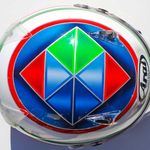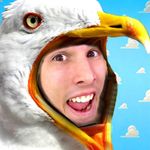Copy link to clipboard
Copied
We’re excited to push an early development preview of new masking workflows to Premiere Pro (beta). Whether you are color grading, applying effects, or cutting objects out from the background, these new masking tools are built to help editors work faster, smarter, and more creatively without needing to go to After Effects for simple tasks.
Note: This beta is an early look at upcoming Premiere Pro workflows and is not intended to reflect general availability performance or polish. Please contact us with bugs, feedback, and feature requests to improve these features.
- Object Mask – Automatically identify objects and people in your footage using AI and isolate them with a single click. Plus mask refinement tools and fast tracking throughout clips.
- Redesigned Shape Masks – the traditional shape mask tools (ellipse, rectangle, pen) have been rebuilt from the ground up with many performance and UI improvements.
- Faster Shape Mask Tracking – the tracking algorithm has been completely rebuilt too. It’s significantly faster than before, more accurate, and offers more precise control for correction.
- Compositing tools – blend any combination of Object and Shape Masks to create complex masks with new blend modes: add, subtract, intersect
Quick Start guide
Follow these steps to get started with New Masking.
- Make sure you have enabled New Masking (see above).
- Select a clip on the timeline.
- Find the new Mask Tool group in the toolbar. Long-press to see all the masking options. Choose the Object Mask tool.
Tools
- Hover the mouse over the program monitor, watch as objects are identified, and click. This will draw a static mask around the object or person.
- Track the motion. Find the new “Object Mask” in the “Unassigned Masks” section of the Effect Controls Panel. Click on the forward and back button.
Tip: the Effects panel is a different panel from the Effect Controls Panel. Find it in the Window menu.
- Add an effect. Find the Gaussian blur effect in the Effect Panel. Drop it on the clip in the timeline. The mask will automatically be applied to the effect.
- Congratulations, you just used Object Mask to blur an object!
- Now, try to use the other tools in the group in a similar manner.
Visit here for the complete documentation. https://helpx.adobe.com/premiere-pro/using/object-masking.html
We want to know what you think. Join the conversation below.
 2 Correct answers
2 Correct answers
@FlyingFourFun Thanks for your detailed feedback.
I will reach out to you over direct message regarding how to share the videos you were referring to.
We have a helpx page that might help with some of the questions you have raised.
https://helpx.adobe.com/premiere-pro/using/object-masking.html
Blend mode of mask can be used to combine the masks together. You can use "Add", "Subtract" or "Intersect" to combine masks. Any number of Object Masks and Vector Masks can be combined to create complex mas
Make sure to right click on the tracked mask in the Effect Controls and select Change to Opacity Mask. Duplicate your video and remove the tracked opacity mask and placed that on V1 and your masked layer on V3 or above. Place your graphics on V2 and it should show up.
Copy link to clipboard
Copied
@Angel_DCastillo glad you found the problem. You may want to consider conforming your footage to the 'intended' framerate rather than converting to fixed. If you conform the existing media, you do not lose any frames that would be cut otherwise causing temporal discontinuities which may still pose issues with tracking or just visually.
Copy link to clipboard
Copied
VFR footage is really difficult to work with. We will be investing in making VFR work better throughout the app in newer versions. But we have put in some recent fixes just for mask tracking. Can you update beta to the latest and try this again and let us know if you are still running into the issue?
Copy link to clipboard
Copied
Will we see edge refine in the edge?
Copy link to clipboard
Copied
hey all seems good but i am not able to use this because it is not avilable for macbook i am really upset for this can you pls tell me how can i install in my macbook currently i am using m2 chipset
Copy link to clipboard
Copied
@harsh_4394 what version of beta are you using? It should be enabled in the currently avaialable beta build.
Copy link to clipboard
Copied
Love the new AI-powered Object Mask tool! My question is, will it be added to After Effects as well? As good as the tool is in Premiere Pro, it would be expremely powerfull in After Effects. Rotoscope is cool, but an AI-powered Object Mask tool for After Effects would dominate the VFX world.
Copy link to clipboard
Copied
@Sassy_Llama Yes, we plan to bring this to After Effects early next year! Keep an eye on the After Effects beta.
Copy link to clipboard
Copied
Cool!
Copy link to clipboard
Copied
Copy link to clipboard
Copied
Take a look at the original post, specifically 'To get started".
Copy link to clipboard
Copied
I didn't understand your screenshot, but this is what I think you are asking....
The option to enable new masking or not (an option in PR Beta 25 after this was added) was removed in PR Beta 26. The "new" masking is always on in PR Beta 26.
Stan
Copy link to clipboard
Copied
!!Be advised!! The size and shape of shape masks may change after updating your beta app to 26.0 build 25 (released on Saturday, November 8).
We are changing the way we handle scaling of shape masks (rectangle, ellipse, pen). Previously, we were using numbers based on the size of the sequence (e.g., x=1920, y=1080), when we should have been using percentages, as other scale parameters do throughout Premiere. Unfortunately, its a somewhat significant architectural change and requires a new data structure under the hood. If you had masks with scale before, the scale will be reset to default (100%) after updating to build 25. As a result, the size of your mask may change slightly or significantly. We apologize if this interferes with any creative work you have done. As always, it is not advisable to work on mission-critical work in beta. This does not affect object masks, as they cannot be scaled. Please take a look and lets us know if this makes more sense. This is based on feedback from @Shebbe in this previous post. Thank you for pointing this out!
Here is what the scale parameter looks like now.
Copy link to clipboard
Copied
Thanks a lot for reiterating this while we're still in beta. Addressing this now under the hood rather than 'band-aiding' it long after release is always the best tactic.
Curious, is there interest in additional Size (under path) parameter as per my feedback? I can see confusion with it when a 4k clip's drawn rectangle size would not be == real pixels if it's used in an HD timeline with scaling applied, but there could still be benefits like being able to type values to make the drawn rectange a certain ratio regardless of what the initial drawn object's ratio was if that makes sense. This would not be possible with the current mechanisms where you only get 100/100% relative to initial drawn ratio which may be arbitrary.
Copy link to clipboard
Copied
Deleted.
Copy link to clipboard
Copied
The 100% seems arbitrary to me. If I just draw a rectangle, everything is a percentage of that initial drawing. So, I have one rectangle that's 720p and another 1080p. How would I get those two in a UHD project? 122.3% of ....?
Copy link to clipboard
Copied
Their initial mechanism was arbitrary because the dimensions where related to the sequence resolution which had nothing to do with the data regardless of how it was drawn. Now it is a normalized scale range relative to the initial drawn state which is logical and similar to AE shapes' transform group. It's just that we also need an absolute pixel size parameter for the path itself so we have a way to use resolution/ratio based sizes.
If you draw a rectangle of some size on a 4K clip scaled to HD in an HD timeline and draw the same (screenspace) size rectangle on an HD clip the absolute dimensions would actually be different because the data is scaled by clip motion after the fact, so in that sense absolue values are still sort of relative in the way you use them. But this isn't as much of a problem.
For in/out animations for masks the % scale parameter is more useful because it's normalized 0-100.
FWIW the change to scale 0-100 is at least a good one. Having additional absolute size is the best solution imo.
Having only absolute size is less desireable I think.
Copy link to clipboard
Copied
@Shebbe , thanks for that info. 🙂
Copy link to clipboard
Copied
Ich finde das neue Tool unfassbar stark, für eine Beta.
Kann gerade jede Person, welche vor meiner Kamera ein Interview gegeben hat, mit einem Klick freistellen.
Das Tool an sich funktioniert tadellos, habe bisher keine Mängel entdeckt.
Allerdings habe ich beim Export Probleme. Ich dupliziere meinen CLip und lege passend über den anderen.
Beim oberen entferne ich durch das Objekt Maskieren Tool den Hintergrund und finalisiere dann den Look der oberen Videoebene (bezüglich der Hauttöne).
Beim Export, hat nur der untere Clip die Lumetri auf sich angewendet. Das obere "freigestellte" video, ist im log exportiert.
Hat jemand hier einen hint? Hab ich ggf Fehler im Media Encoder oder in den Exporteinstellungen von Premiere?
Beste Grüße und besten Dank
Copy link to clipboard
Copied
@Felix_Althaus5149 is your version of Media Encoder the latest available. If not, please update it and let us know if the problem persists. I would recommend using the latest beta version for both Preemiere Pro and Media Encoder to ensure the best results. Thanks!
Copy link to clipboard
Copied
Another issue related to the transform of regular masks that i hope will be adressed before an official release of this feature, is that clicking the reset button of position and anchor point was not reset to 0,0 but more reasonable and expected values.
For position it would make much more sense to be the center of the frame and not at the top left. That should be an easy fix.
For anchor point the issue is a bit more involved i know. But I think that a reset anchor point should be at the center of a mask shape, and if the shape has been modified i would expect the anchor point to be re-calculate for the shape at the current time (like how you can re-calculate the anchor for a layer in AE that has a mask applied by ctrl+click the Move Anchorpoint Tool button) . This would potentially move a mask if it has been keyframe, but it is much more desireable than the current behaviour where the mask will in most cases be moved way outsider the frame when the anchor is reset to 0,0.
Copy link to clipboard
Copied
I’m very satisfied with the accuracy of the Object Selection tool. The standard mask tools have also become much easier to use, and I now find them more user-friendly than those in DaVinci Resolve.
However, there is one improvement I would like to request.
When animating an ellipse mask frame by frame and adding position keyframes, if I apply rotation partway through, the rotation value gets applied retroactively to earlier keyframes. Ideally, the previous keyframes should keep their original rotation and not be affected by later adjustments.
At the moment, the only workaround is to manually add a rotation keyframe to the previous position keyframe before applying any rotation.
It would greatly improve workflow if rotation adjustments did not affect earlier keyframes automatically.
Copy link to clipboard
Copied
@narisan I feel your feedback for the key framing needs further discussion. How you describe the key framing as blending to the prev keyframe seems to be a typical behaviour, and expected.
For example:
1) if you have no keyframes set, and in frame 100, you move the keyframe, the new position set at frame 100 becomes the global position.
2) if you set a position in frame 10, and a new one at frame 100, frame 10 becomes the starting position for all frames prior to it, and from frame 10 to frame 100 the position is interpolated, and the last position in frame 100 continues to the end of the clip.
If I read your information correct, it seems as if the keyframe process is operating within normal and consistent behavior from both how Premier, and other tools handle Keyframes.
If I have missed something, please advise.
I think the keyframes should behave as per industry norms and not differ as the guideline.
Copy link to clipboard
Copied
Thank you for your reply. As you mentioned, I understand that the rotation, position, and scale animations start based on the points where each mask path is created. However, I believe the behavior used to be different in the previous versions of Premiere Pro.
For your reference, I’ve attached a video. When applying a mask from the left side to the three square shapes, I set a total of three mask paths—one for each position. The first half of the video shows how this worked in previous versions of Premiere Pro, and the second half shows how it behaves in the beta version.
Is there any setting that allows the beta version to behave like the traditional Premiere Pro?
Lastly, if you have any advice, I would greatly appreciate it.
Copy link to clipboard
Copied
+1
Copy link to clipboard
Copied
Please Add Object tracking, like you can ancor transform keyframe to an object so it track a TEXT on HAND for example, i really miss this feature, and should be easy with this new tool.
Find more inspiration, events, and resources on the new Adobe Community
Explore Now







